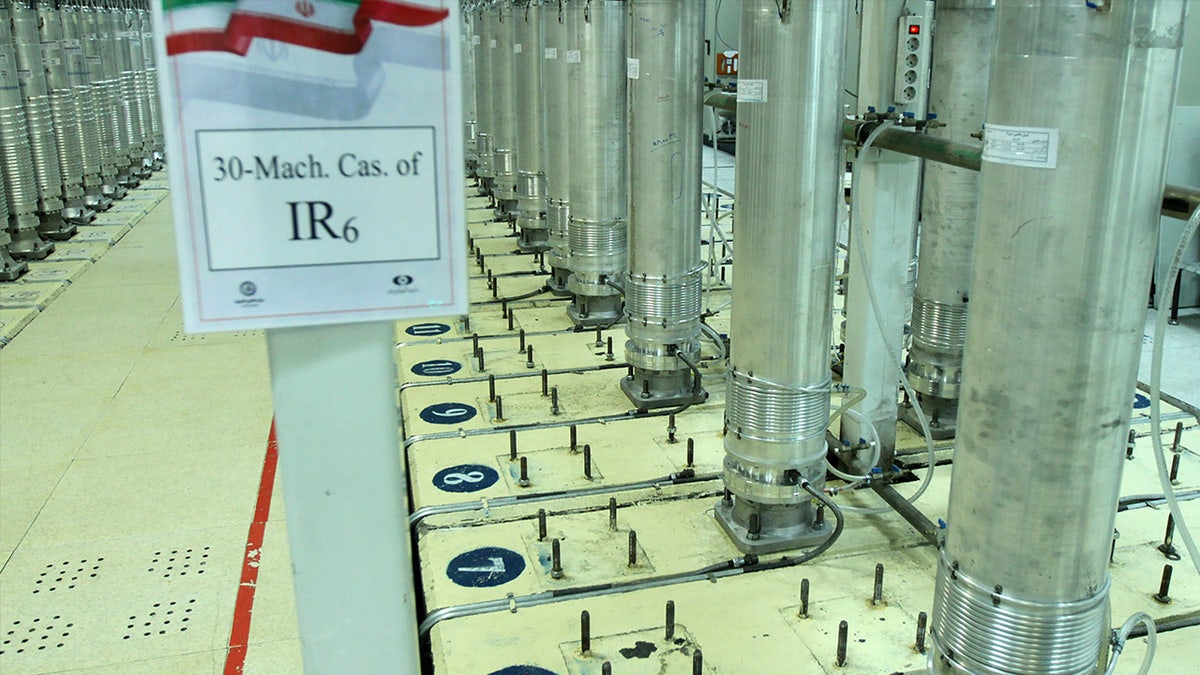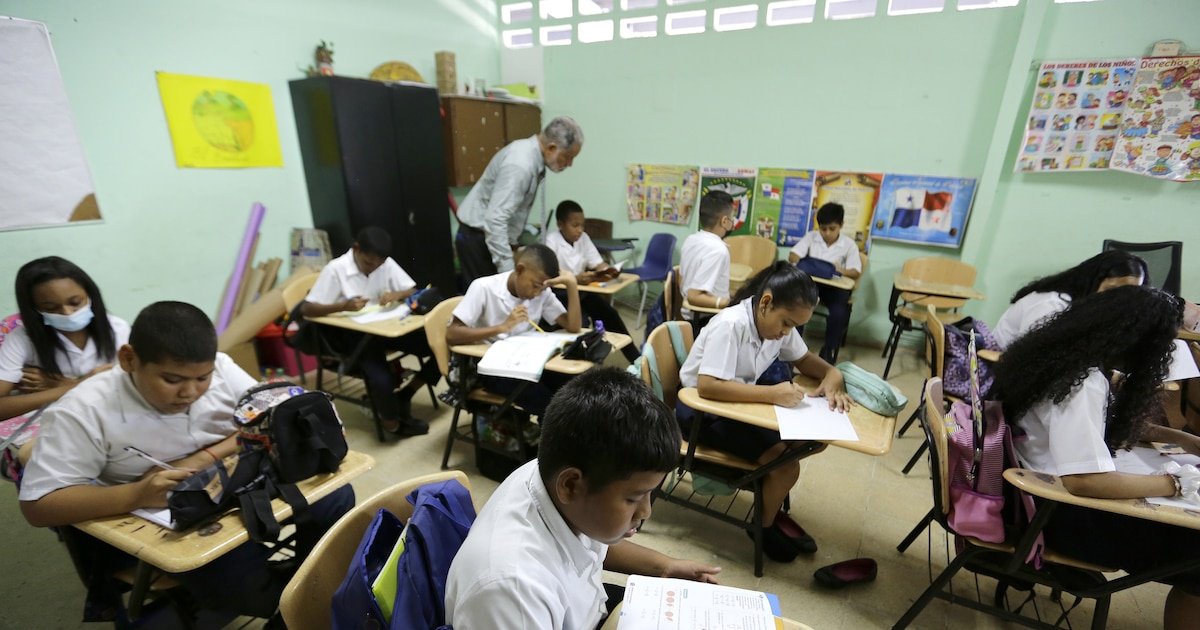INTERNACIONAL
Iran still wants a nuclear weapon despite ‘serious damage’ from US, Israeli strikes: expert warns

NEWYou can now listen to Fox News articles!
Iran is preparing its next step in what one security expert warns remains its chief objective: developing a nuclear weapon.
«Repair, reconstitute and rebuild is going to be the modus operandi of the Islamic Republic of Iran,» Behnam Ben Taleblu, Senior Director of the Foundation for Defense of Democracies’ Iran Program told Fox News Digital. «It just depends on how are they going to be doing it? While flirting with the international community? Are they going to go dark totally altogether?
«All of this remains to be seen,» he added.
WHAT’S NEXT FOR IRAN’S TERROR ARMY, THE IRGC, AFTER DEVASTATING MILITARY SETBACKS?
Iran’s Supreme Leader Ali Khamenei addresses the media during the voting of Parliament Elections in Tehran, Iran on May 10, 2024. (Photo by Fatemeh Bahrami/Anadolu via Getty Images)
Spokesman for the regime, Fatemeh Mohajerani, confirmed this week that the Fordow, Isfahan and Natanz nuclear sites had been «seriously damaged» following the U.S. and Israeli strikes on Iran’s nuclear program last month.
Questions remain over the extent of damage that was incurred, as well as skepticism over whether Iran was able to move any enriched uranium or centrifuges away from the heavily guarded sites prior to the strikes.
Though the Trump administration said on Wednesday that it had «obliterated» the three facilities it struck, and has fervently rejected reports suggesting that Iranian officials may have been able to transfer some elements of the regime’s coveted nuclear program, Israeli officials confirmed this week that they are continuing to monitor the situation closely.
Experts in the U.S. and Israel have said they believe Iran is still assessing the extent of the damage from the «bunker busting» bombs, and that the regime will look to recover and repair what it can — meaning it may be looking to buy time.
«No doubt, the regime will still have a diplomatic strategy designed to rope-a-dope anybody, and to find as much time as possible for this government to do that,» Ben Taleblu said.
The Iranian regime this week suggested it remained open to negotiations with the U.S. after President Donald Trump signaled that the talks could begin as soon as next week, though multiple Iranian officials said that that timeframe was overly ambitious.
«I don’t think negotiations will restart as quickly as that,» Iranian Foreign Minister Abbas Araghchi said in a CBS News interview. «The doors of diplomacy will never slam shut.»
TRUMP COULD ARM ISRAEL WITH US B-2S AND BUNKER BUSTERS IF IRAN TRIES TO GO NUCLEAR UNDER NEW PROPOSAL

This satellite picture by Planet Labs PBC shows Iran’s underground nuclear enrichment site at Fordow following U.S. airstrikes targeting the facility, on Sunday, June 22, 2025. (Planet Labs PBC via AP)
But the regime also took steps to further hinder the UN nuclear watchdog — which is tasked with tracking all nation’s nuclear programs — and suspended all interaction with the International Atomic Energy Agency (IAEA) on Wednesday.
That same day, the State Department condemned the move, and spokesperson Tammy Bruce said it was «unacceptable that Iran chose to suspend cooperation with the IAEA at a time when it has a window of opportunity to reverse course and choose a path of peace and prosperity.»
Iran has limited IAEA access in the past and Ben Taleblu argued Tehran will likely look to do this again as it attempts to hold on to any bargaining chip it can.
«The Islamic Republic of Iran’s next step, and likely most dangerous capability right now, is its diplomatic capability,» the Iranian security expert argued. «This is the capability of the regime to either enter negotiations with a weak hand and leave with a strong hand, or try to prevent a military victory of its adversaries from becoming a political victory.
«If negotiations do take place between the U.S. and the Iranians, be they direct or indirect, the Iranians are going to be dangling IAEA access. This is already their most important weapon,» he added.
Ben Taleblu explained that using the IAEA as a bargaining chip not only enables Iran to play for time as it looks to re-establish its nuclear program, but to sow division in the U.S. by creating uncertainty.
GEN. KEANE: IRANIANS HAVE NOT GIVEN UP ON A NUCLEAR WEAPON

This photo released on Nov. 5, 2019, by the Atomic Energy Organization of Iran shows centrifuge machines in the Natanz uranium enrichment facility in central Iran. (Atomic Energy Organization of Iran via AP, File)
«By diminishing the monitoring and by circumscribing and even cutting IAEA access to these facilities, the regime is trying to make America have to rely on intelligence alone,» he said. «And as you see from the very politicized debates over the battle damage assessment, relying on intelligence alone without sources on the ground inspecting the sites, inspecting the facilities, documenting the fissile material, can lead to drastically different conclusions being taken by similar but not the same intelligence organizations or representatives.»
Ultimately, Iran is not going to give up on its nuclear ambitions, Ben Taleblu warned, noting that Tehran’s security apparatus completely changed during its war with Iraq in the 1980s.
«Everything that we face from the regime that is a security threat was started then — the ballistic missile program, the drone program, the maritime aggression, the transnational terrorist apparatus and the nuclear program all have their origins in the 1980s,» he said. «By resurrecting this nuclear program, the Islamic Republic was not engaging in a science fair experiment.

A big banner depicting Iran’s Supreme Leader Ayatollah Ali Khamenei is placed next to a ballistic missile in Baharestan Square in Tehran, Iran, on September 26, 2024, on the sideline of an exhibition which marks the 44th anniversary of the start of Iran-Iraq war. (Hossein Beris/Middle East Images/AFP via Getty Images)
CLICK HERE TO GET THE FOX NEWS APP
«The Islamic Republic was seeking an ultimate deterrent,» Ben Taleblu continued. «It was seeking an ultimate deterrence because it had a vision for what the region and the world should look like, and it was willing to put foreign policy muscle and the resources of its state behind that vision.»
The expert on the Iranian regime warned that Iran’s 40-year «obsession» with developing its nuclear program to achieve its geopolitical aims is not going to change because of U.S. military intervention.
INTERNACIONAL
Más de 876 mil estudiantes regresarán a clases en Panamá desde el 2 de marzo

El próximo 2 de marzo, Panamá dará inicio al año escolar 2026 con el regreso de más de 876 mil estudiantes a las aulas del sistema educativo oficial y particular, en medio de un proceso marcado por avances en infraestructura, conectividad y nombramientos docentes, pero también por planteles que continúan en mantenimiento.
La ministra de Educación, Lucy Molinar, reconoció que no todas las escuelas estarán listas para el arranque, aunque aseguró que existe un esfuerzo institucional significativo para garantizar condiciones adecuadas desde el primer día de clases.
De acuerdo con los datos presentados por el Ministerio de Educación (Meduca), alrededor del 99.5% de los centros escolares se encuentran preparados para iniciar el periodo lectivo, mientras que un grupo reducido de planteles permanece en trabajos de rehabilitación, mantenimiento y adecuaciones.
La titular de la cartera explicó que estos casos serán atendidos de forma progresiva durante el año, reiterando que el objetivo es evitar retrasos prolongados en la continuidad académica de los estudiantes.

Son 13 los centros educativos los que no estarán en condiciones de recibir a los estudiantes a inicio de marzo. Estos planteles se concentran principalmente en zonas con mayor rezago de infraestructura y complejidad logística, como áreas comarcales, sectores rurales de Darién, Bocas del Toro, Veraguas y comunidades apartadas de Panamá Este y Ngäbe-Buglé, donde los proyectos han enfrentado retrasos por licitaciones desiertas, dificultades de acceso y problemas estructurales acumulados.
Los estudiantes desarrollarán actividades bajo modalidades no presenciales para no afectar el calendario escolar en dichas zonas.
El sistema educativo panameño recibirá a estudiantes distribuidos entre escuelas públicas y privadas, con un predominio del sector oficial, que concentra la mayor matrícula nacional.
En paralelo, el Meduca informó que el proceso de nombramientos docentes avanza con la incorporación de 3,150 educadores seleccionados en concurso, quienes se suman a un total de 52,790 maestros y profesores que estarán en sus puestos al iniciar el año escolar, con el propósito de garantizar cobertura académica desde el primer día.

La logística previa al inicio de clases incluirá desde este sábado 21 de marzo el traslado de docentes a áreas de difícil acceso, operativo desarrollado con apoyo de instituciones de seguridad y transporte estatal, con el fin de asegurar la presencia de educadores en regiones comarcales y comunidades apartadas. Este proceso se ejecuta en fases y contempla movilización aérea, marítima y terrestre, en una estrategia diseñada para evitar vacantes docentes en zonas vulnerables.
En materia de infraestructura educativa, el Meduca reportó la ejecución de 130 proyectos vinculados a reparaciones, ampliaciones y mejoras en centros escolares, además de iniciativas en acto público y proyectos en desarrollo. La inversión contempla intervenciones en techos, sistemas eléctricos, plomería, pintura, sustitución de aulas rancho y construcción de espacios temporales prefabricados, con impacto en miles de estudiantes a nivel nacional.
Las autoridades detallaron que la inversión directa en mantenimiento y mejoras asciende a 15.3 millones de dólares, con proyectos orientados a intervenir 2,726 centros educativos, mientras que programas adicionales incluyen el reemplazo de techos en 120 colegios, la instalación de aulas prefabricadas reutilizables, mantenimiento de sistemas fotovoltaicos y eliminación de letrinas en escuelas ubicadas en zonas rurales.

El presupuesto del Ministerio de Educación para 2026 se ubica entre aproximadamente $3,639.5 millones y $3,745 millones, según el desglose oficial del Presupuesto General del Estado.
Uno de los componentes centrales del inicio del año escolar es la conectividad digital, donde el Meduca informó que actualmente 1,223 escuelas cuentan con acceso a Internet de alta velocidad, como resultado de una licitación nacional orientada a modernizar el sistema.
El plan contempla que los planteles conectados por fibra óptica dispongan de velocidades significativamente superiores, mientras que en zonas remotas se utilizará Internet satelital de baja órbita para ampliar la cobertura.
Aunque la meta gubernamental es alcanzar el 100% de conectividad escolar, las autoridades reconocieron que este objetivo se logrará de forma gradual durante el año, debido a limitaciones logísticas y técnicas en algunas regiones.
En paralelo, el programa tecnológico incluye la entrega de 54 mil computadoras para docentes, cuyo contrato ya se encuentra en ejecución, así como una licitación en curso para 531,250 equipos destinados a estudiantes, como parte de la estrategia de integración digital en el aula.

En el ámbito curricular, el Meduca presentó avances en el rediseño del currículo educativo, proceso que busca actualizar contenidos y reorganizar la estructura académica para responder a los cambios globales y a las demandas del mercado laboral. La ministra Molinar indicó que la reforma no es definitiva y continuará evolucionando mediante revisiones periódicas que permitan incorporar innovaciones y mejorar la pertinencia del sistema educativo.
El plan de verano implementado por la entidad reportó avances en mantenimiento escolar, con 662 centros intervenidos y 158 en proceso de atención, lo que representa cerca del 80% de ejecución de las labores programadas. Estas intervenciones incluyeron limpieza de instalaciones, reparación de luminarias, impermeabilización de techos, mejoras en cocinas escolares y adecuaciones de espacios administrativos.
Adicionalmente, el programa Plan Libertad, que involucra apoyo de privados de libertad en labores de mantenimiento escolar, ha permitido intervenir 300 escuelas en 10 regiones educativas, beneficiando a más de 150 mil estudiantes, mientras que la iniciativa Pintando el Futuro reporta la adecuación cromática de 194 planteles, con el objetivo de generar entornos de aprendizaje más armónicos.
clase,estudiantes panameños en colegios,grupo. aula,niño
INTERNACIONAL
EPA scraps Biden coal restrictions as advocates say move will restore American dominance

NEWYou can now listen to Fox News articles!
A leading domestic energy advocacy group praised EPA Administrator Lee Zeldin’s announcement that his agency would undo recent additions to the federal «mercury and air-toxics standards» (MATS) for coal-fired power plants.
Zeldin said removing the restrictions allows the already «robust» MATS standards to remain in effect, ensuring both public health and the health of America’s coal industry amid a push for U.S. energy dominance.
«The Biden-Harris Administration’s anti-coal regulations sought to regulate out of existence this vital sector of our energy economy. If implemented, these actions would have destroyed reliable American energy,» Zeldin said at the Mills Creek Power Plant in Kentucky, adding that protecting the environment and supporting industry and baseload power is not a «binary choice.»
In response, Power the Future founder Daniel Turner told Fox News Digital the move is a significant step toward revitalizing the American coal industry and, in turn, fueling economies in economically depressed industrial communities throughout Appalachia and beyond.
TRUMP DIRECTS MILITARY TO STRIKE NEW DEALS WITH COAL-FIRED POWER PLANTS: ‘GOING TO BE BUYING A LOT OF COAL’
«Since the war on coal, we have weakened our grid, driven electricity prices through the roof, outsourced major industries to Mexico and China, but most of all driven tens of thousands of Americans into ruin because of a globalist agenda,» Turner said Friday, adding that the costs of a crippled coal industry went far beyond shuttered infrastructure:
«The cruel Obama-led war on coal ruined numerous towns across rural America, drove families into poverty, caused alcoholism, opioid addiction, domestic violence, and suicide to skyrocket.»
«Power The Future started because of coal miners, the acceptable casualties in the globalist climate change agenda,» said Turner, whose group is based in coal-heavy Virginia.
EPA CHIEF WRAPS NATIONAL TOUR AS CRITICS SLAM DEREGULATION AGENDA
«Restoring America’s coal dominance is good for our national security and economy, and it restores the dignity of small-town coal workers whose labor is vital to America’s survival.»
Many of America’s poorest counties are in what were once very wealthy coal communities — including McDowell and Mingo counties in West Virginia and Bell, Letcher, McCreary, and Breathitt counties in Kentucky, where Vice President JD Vance’s family is from.
During much of the 20th century, McDowell County — and its seat, Welch — was the No. 1 coal-producing county in the U.S. and home to 100,000 people — a population boom some credit with spurring construction of what became the nation’s first parking deck, which is still standing today in Welch.
TRUMP ADMIN RELAUNCHES KEY COUNCIL AFTER BIDEN ADMIN SHUTTERED IT: ‘IGNORANCE AND ARROGANCE’
Now, about one-quarter of McDowell residents live in poverty while the median income is around $30,000.
Turner alluded to those conditions in comments to Fox News Digital, saying people must «never forget or forgive the drivers of the war on coal for their cruel attacks on a vital industry found only in rural America.»
«[Anti-coal politicians] fly private jets to attend global climate summits while they orchestrated an evil attack on the coal miner making America weaker and China richer.»
Turner quipped that any «anti-coal activist» is invited to join him in visiting coal-producing communities but may be unhappy to get dirt on their clothing and find lodging not up to «Four Seasons» standards.
«We need coal. There is not one product around you right now that was not touched by coal, and to lower prices, bring market stability and ensure economic growth, we need to dominate the coal industry,» Turner said.
The Mill Creek power plant in Kentucky, where Lee Zeldin made his announcement, is seen. (Jon Cherry/Getty Images)
CLICK HERE TO DOWNLOAD THE FOX NEWS APP
«Sadly, the liberal elite who launched the war on coal are too ignorant or too indifferent to know this. The ignorant can be educated, and that’s what I try to do at Power The Future. But the indifferent must be defeated, as they are a threat to our liberty, property and prosperity. I will never stop until I defeat them all,» he said, calling President Donald Trump the «greatest coal president in history.»
Former EPA Administrator Gina McCarthy fired back at the policy change, telling the AP that «by weakening pollution limits and monitoring for brain-damaging mercury and other pollutants, they are actively undermining any attempt to make America — and our children — healthy.»
health care,republicans,energy,environment regulation,regulation
INTERNACIONAL
Otro golpe para el ex príncipe Andrés: quieren eliminarlo de la línea de sucesión al trono británico por sus vínculos con Jeffrey Epstein

El ex príncipe Andrés será eliminado de la línea de sucesión al trono británico. Por ser el hijo de la reina Isabel ocupa el octavo lugar, tras haber sido segundo antes que nacieran los príncipes William, Harry y sus hijos. Downing St considerará introducir una ley para destituir al octavo en la sucesión al trono, una vez finalizada la investigación policial sobre el caso Epstein.
El primer ministro británico Sir Keir Starmer considerará aprobar una ley para destituir a Andrew Mountbatten-Windsor de la sucesión al trono. Cualquier cambio en la legislación se produciría una vez concluida la investigación policial sobre el ex príncipe caído en desgracia.
Esta histórica medida se produce tras el breve arresto de Mountbatten-Windsor el jueves, bajo sospecha de mala conducta en el ejercicio de un cargo público.
Mountbatten-Windsor ha sido despojado del título de príncipe, pero sigue siendo el octavo en la sucesión al trono, después de William, Harry y sus hijos.
El cambio requiere una ley del Parlamento. Downing Street consultará con los demás reinos de la Commonwealth antes de realizar cualquier cambio.
Todos los demás países donde Carlos III es rey, incluyendo Australia, Canadá y Nueva Zelanda, tendrían que aprobar la legislación para destituirlo.
El viernes, Andrew Bowie, secretario en la sombra para Escocia, declaró a GB News: «Creo que sería lo correcto. Por supuesto, si es declarado culpable de esto, creo que el Parlamento estaría en su derecho de actuar para eliminarlo de la línea de sucesión”.
«Pero, recordemos, todavía no ha sido declarado culpable de nada:aún no se le ha imputado ningún delito. Así que debemos dejar que la investigación policial siga su curso, y creo que todos deberíamos actuar en consecuencia», dijo.
Mountbatten-Windsor se convirtió en el primer miembro de la familia real en la historia moderna en ser arrestado el jueves, día que también coincidió con su 66° cumpleaños.
La policía allanó la residencia temporal del ex príncipe, Wood Farm, en Sandringham, a la hora del desayuno, antes de llevarlo a la comisaría de Aylsham, en Norfolk. Pasó casi 12 horas detenido antes de ser puesto en libertad bajo investigación.
Los correos electrónicos publicados como parte de los archivos de Epstein parecían demostrar que Mountbatten-Windsor filtró documentos confidenciales a Jeffrey Epstein mientras trabajaba como enviado comercial de Gran Bretaña, representando a la difunta reina Isabel II y al país en el extranjero.
Si el ex príncipe fuera declarado culpable de mala conducta en un cargo público, podría enfrentarse a la cárcel.
El viernes, la policía continuó registrando del Royal en Windsor, la antigua residencia del Sr. Mountbatten-Windsor, tras su liberación. Continuará investigando allí hasta el lunes.También ha comenzado a interrogar a los oficiales de la policía que lo custodiaran para ver si recuerdan hechos.
Por otra parte, la policía de West Yorkshire se convirtió en la décima fuerza policial en confirmar que estaba revisando material del tramo de archivos de Epstein, publicado por el Departamento de Justicia de Estados Unidos.
Un portavoz declaró que la fuerza policial estaba «evaluando los detalles de la información que se ha hecho pública para determinar cualquier posible vínculo con la zona de West Yorkshire».
El rey Eduardo VIII y sus descendientes fueron eliminados de la línea de sucesión cuando abdicó en 1936. El príncipe Michel de Kent también fue eliminado, en virtud de la Ley de Establecimiento de 1701, al contraer matrimonio con una católica en 1978. Sin embargo, fue restituido con la Ley de Sucesión a la Corona en 2013.
Este viernes, Sir Ed Davey, líder del Partido Liberal Demócrata, expresó su apoyo a la monarquía. Pero añadió: «Creo que deberíamos tener presentes a los sobrevivientes y víctimas de Epstein, que tienen que ver toda esta información y posiblemente revivir sus traumas. Es una situación bastante impactante. Dejemos que la policía haga su trabajo».
Se le preguntó a Sir Ed sobre las peticiones de los Demócratas Liberales en los últimos meses para que el ex príncipe comparezca ante el Parlamento para declarar ante los diputados y los pares.
Declaró a la BBC: «Creo que, en términos generales, de cara al futuro, necesitamos más transparencia. Y el Parlamento desempeña un papel fundamental».

 ECONOMIA2 días ago
ECONOMIA2 días agoAyuda Escolar Anual: a cuánto asciende, donde se tramita y quien puede cobrarla

 CHIMENTOS23 horas ago
CHIMENTOS23 horas agoEscándalo en MasterChef: una famosa abandonó a los gritos y acusando que está todo arreglado

 POLITICA22 horas ago
POLITICA22 horas agoDel himno peronista de Kelly Olmos al exabrupto de Agustina Propato: las perlitas del debate por la reforma laboral















